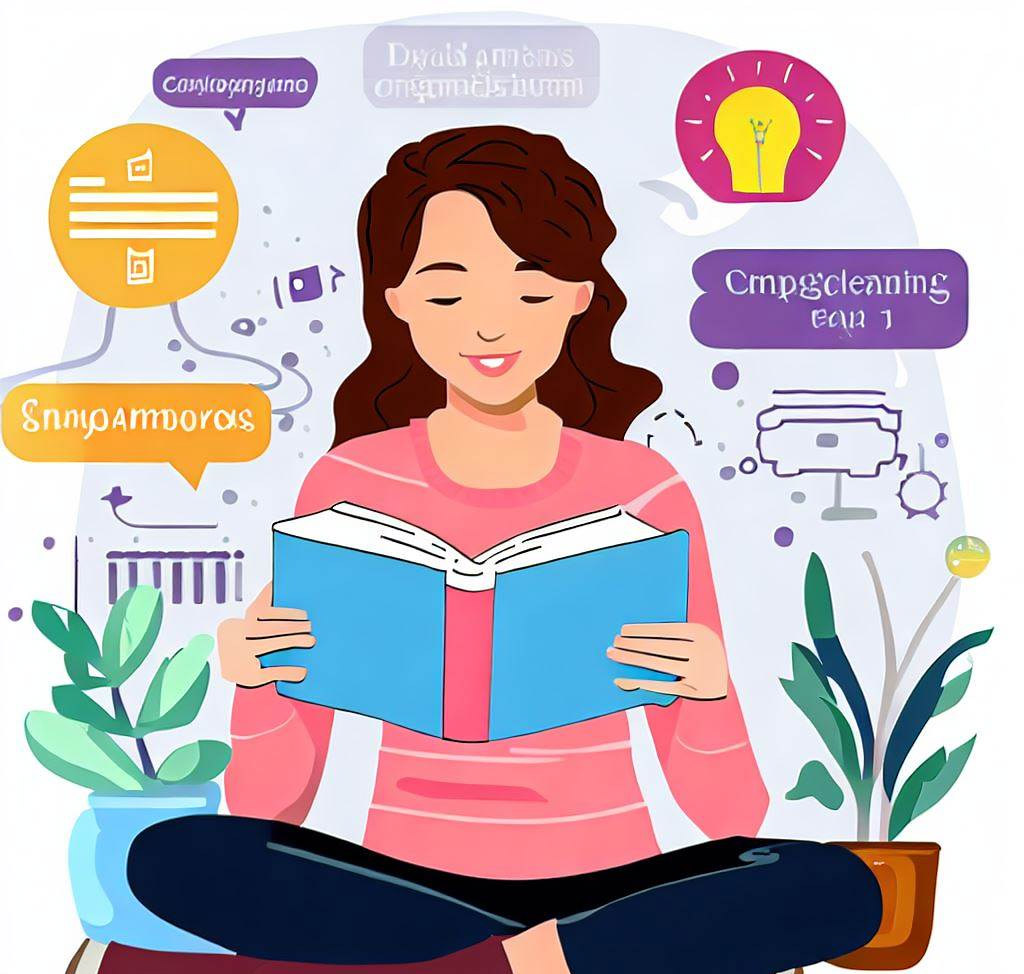
Enhance Reading Skills: Effective Strategies for Better Comprehension
Introduction
Reading, an essential life skill, opens the door to knowledge, imagination, and critical thinking. The importance of reading proficiency cannot be overstated as it serves as a cornerstone for learning across various fields and disciplines. However, achieving a high level of reading proficiency isn't always straightforward. Students and adults alike encounter numerous challenges while trying to improve their reading skills, comprehension, and fluency. This article is designed to provide in-depth, high-quality, and up-to-date strategies to enhance reading proficiency. Whether you're a student seeking to augment your academic performance, a parent desiring to boost your child's reading development, or an educator aiming to refine teaching methods, these techniques will be of significant value.
Overview of Reading Skills and Their Importance
Reading skills encompass the ability to decode written language, comprehend the content, interpret nuanced meanings, and engage with texts critically. Mastering these skills paves the way for lifelong learning, broadens one's worldview, and fosters effective communication.
Why are reading skills important?
- Improved Cognitive Function: Reading regularly stimulates brain activity, enhancing cognitive function and memory.
- Knowledge Acquisition: Reading provides exposure to a vast array of information, boosting general knowledge.
- Language Proficiency: Regular reading strengthens vocabulary, grammar, and writing skills.
- Critical Thinking: Reading, especially diverse genres, promotes critical thinking and problem-solving skills.
- Life-long Learning: Good reading skills lay a strong foundation for academic success and continuous learning throughout life.
Common Challenges Faced in Reading Comprehension
Reading comprehension, the ability to understand and interpret what is being read, is often a significant challenge. Common obstacles include:
- Limited Vocabulary: A restricted vocabulary makes it difficult to understand the text fully.
- Lack of Focus: Distracted reading often leads to missing out on crucial points or themes.
- Poor Fluency: Difficulty in reading smoothly and accurately impacts overall comprehension.
- Lack of Background Knowledge: Understanding of certain texts may require prior knowledge that the reader may not possess.
Recognizing these challenges is the first step towards improving reading proficiency.
Evidence-based Strategies to Improve Reading Skills
A variety of evidence-based strategies have proven effective in improving reading skills and comprehension. Let's delve into these techniques.
Promoting Reading Comprehension
Reading comprehension is the heart of reading proficiency. It enables the reader to understand, analyze, and engage with the text meaningfully. Here are some strategies for enhancing comprehension:
- Active Reading: Encourage engaging with the text actively, making predictions, asking questions, and summarizing sections of the text.
- Use of Graphic Organizers: Tools like Venn diagrams, story maps, or flowcharts can help visualize the text's structure and main points.
- SQ3R Method: Survey, Question, Read, Recite, and Review (SQ3R) is a step-by-step approach that promotes comprehension.
Enhancing Reading Fluency
Reading fluency, the ability to read swiftly, accurately, and with proper expression, is integral to comprehension. Following are some techniques to enhance fluency:
- Repeated Reading: Re-reading a text several times can help improve speed and accuracy.
- Guided Oral Reading: This involves reading out loud while receiving feedback and guidance.
- Choral Reading: In this strategy, a group reads a text together, promoting rhythm and pace.
Promoting Critical Thinking in Reading
Critical thinking in reading equates to not just understanding the text but also evaluating, analyzing, and forming one's perspective. Some methods to promote this include:
- Text Annotation: Encourage readers to note their thoughts, questions, or connections while reading.
- Discussion and Debates: Engage readers in discussions or debates on the text's themes or topics.
- Reflective Journals: Writing reflective entries on the read material can foster critical thinking.
Building Vocabulary for Improved Reading Comprehension
An extensive vocabulary is key to understanding complex texts and engaging in insightful discussions. Here are some methods to expand vocabulary:
- Context Clues: Teach readers to infer the meaning of unknown words from the surrounding text.
- Word Maps: This tool helps understand a word's meaning, synonyms, antonyms, and usage in a sentence.
- Prefixes, Suffixes, and Root Words: Understanding these can help deduce the meaning of unfamiliar words.
Leveraging Technology for Reading Practice
In the digital age, technology offers a plethora of resources to practice and enhance reading skills. E-books, audiobooks, educational apps, and online reading platforms can be beneficial. They provide interactive and engaging ways to practice reading and offer a wealth of diverse reading materials.
Creating a Conducive Reading Environment
A conducive reading environment can significantly influence reading proficiency. Here are some tips:
- Quiet and Distraction-free Space: Choose a calm and quiet space for reading activities.
- Comfortable Seating and Lighting: Ensure the seating is comfortable, and the lighting is adequate.
- Regular Reading Time: Establish a regular reading schedule to build a consistent reading habit.
Selecting Appropriate Reading Materials
Choosing the right reading materials is crucial for reading practice. The selection should cater to the reader's interest, be at an appropriate difficulty level, and encompass a variety of genres.
Recent Developments in Reading Instruction and Research
The field of reading instruction and research is continually evolving. Recent trends include the focus on digital literacy, personalized learning experiences, and integrating reading across various subjects. These trends underline the need for adaptable and diversified strategies for improving reading proficiency.
Conclusion
Reading proficiency is a vital skill that underpins learning, critical thinking, and communication. Overcoming challenges in reading comprehension and fluency requires targeted strategies, consistent practice, and a conducive environment. Leveraging technology and selecting appropriate reading materials further facilitate the process. Stay abreast of the latest developments and continue to refine and adapt these strategies for continued growth in reading proficiency.
"Reading is to the mind what exercise is to the body." - Joseph Addison
Remember, enhancing reading proficiency is a continuous journey of exploration, understanding, and growth. So, pick up a book and embark on this rewarding journey today!
Life Skills




